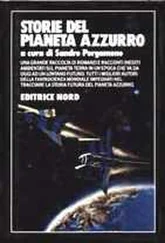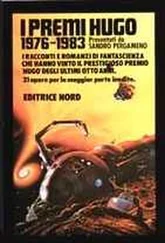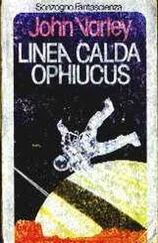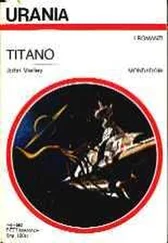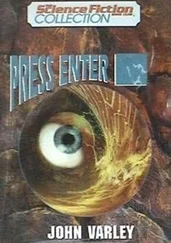These people didn't engineer anything any better than they had to, and the reason was simply that they had this marvelous back-up system. It's going to be revolutionary, I tell you.
"I get the feeling you don't approve," he said, at last.
"Of what? Your kids? Hey, I was just-"
"Of what they do."
"Well, Winston sure does. I think he's eaten half their stock."
I was thinking fast. I wanted to learn more from this man, and the way to do that is not by running down his children and his way of life. But one of the things I knew about him was that he didn't like liars, was good at detecting them, and, though a career in reporting had made me a world-class liar, I wasn't sure I could get one by him. And I wasn't sure I wanted to. I had hoped I'd put a lot of that behind me. So instead of answering his question, I said something else, a technique familiar to any journalist or politician.
And it seemed to have worked. He just grunted, and reached down to pet Winston's ugly mug. Once more the hound came through for me, not taking off the hand at the wrist. Still digesting the horselet, probably.
***
We came to a door marked MAIN DRIVE ROOM, and he held it open for me. You could have driven a golf ball into the room and never hit a wall, and you could have driven a medium-size rover race in it. Whether you could drive a spaceship the size of the Heinlein was very much an open question. But in front of me were the signs that someone was trying.
Most of the cavernous room was filled with structures whose precise description I must leave to your imagination, since the drive room of the Heinlein is still a closely-guarded secret and certainly will be until long after they get the damn thing to work. I will say this: whatever you imagine will surely be far off the mark. It is unexpected, and startling, like opening the hood of a rover and finding it's powered by a thousand mice licking a thousand tiny crankshafts, or by the moral power of virginity. And this: though I could hardly identify anything as basic as a nut and bolt in the fantastical mess, it still had the look of Heinleiner engineering, wherein nothing is ever any better than it has to be. Maybe if they get time to move beyond prototypes they'll get more elegant and more careful, but in the meantime it's "Don't bend that wrench. Get a bigger hammer." Heinleiner toolboxes must be filled with bubblegum and bobby pins.
And yes, O good and faithful reader, they were planning to launch the hulk of the old Robert A. Heinlein into interstellar space. You heard it here first. They were not , however, planning to do it with an endless stream of nuclear cherry bombs pooting out the tailpipe. Just what principles were envisioned is still proprietary information, but I can say it was a variant technology of the mathematics that produced the null-field. I can say it because no one but Smith and a handful of others know what that technology is.
Just imagine them harnessing the old wreck to a team of very large swans, and leave it at that.
"As you can see," Smith was saying as we walked down a long and fairly rickety flight of metal stairs, "they've just about frabjulated the primary phase of the osmosifractionating de-hoo-dooer. And those guys ratattating the willy-nilly say they ought to have it whistling Dixie in three days' time."
No secrecy involved here. I'd have written exactly what he said, if I had any hope of remembering it, and the meaning would have been the same: nothing. Smith never seemed to mind if his audience was coming into the clubhouse two or three holes behind him; he rattled off his own private jargon without regard to whether or not it was being monitored. Sometimes I thought it just helped him to think out loud. Sometimes I thought he was showing off. Probably a little of both.
But I can't get away from the subject of the interstellar drive without mentioning the one time he made an attempt to put it in layman's terms. It stuck in my mind, possibly because Smith had a way of making "layman" rhyme with "retarded."
"There are basically three states of matter," he had said. "I call them wackiness, dogmatism, and perversity. The universe of our experience is almost totally composed of dogmatic matter, just as it's mostly what we call 'matter,' as opposed to 'anti-matter'-though dogmatic matter includes both types. Every once in a great while we get evidence of some perverse matter. It's when you move into the realm of the wacky that you have to watch out."
"I've known that all my life," I had told him.
"Ah, but the possibilities!" he had said, waving his hand at the drive taking shape in the engine room of the Heinlein .
As he did now, providing the sort of segue I hate when a director does it in a movie, but the fact is Smith had a habit of waving his hand grandly when coming upon his mighty works. Hell, he had a right.
"See what can come from the backwaters of science?" he said. "Physics is a closed book, they all said. Put your talents to work in something useful."
"'They jeered me at the Sorbonne!'" I suggested.
"They threw eggs when I presented my paper at the Institute! Eggs !" He leered at me, dry-washing his hands, hunching his shoulders. "The fools ! Let them see who has the last laugh, ha ha HA !" He dropped the mad scientist impression and patted a huge machine on its metal flank, a cowboy gentling a horse. Smith could have been insufferably stuffy except for the fact he'd seen almost as many old movies as I had.
"No kidding, Hildy, the fools are going to be impressed when they see what I've wrung out of the tired old husk of physics."
"You'll get no argument from me," I said. "What happened to physics, anyway? Why was it neglected for so long?"
"Diminishing returns. They spent an insane amount of money on the GSA about a century ago, and when they turned it on they found out they'd hubbled it up. The repairs would have-"
"The GSA?"
"Global Supercooled Accelerator. You can still find a lot of it, running right around the Lunar equator."
I remembered it then; I'd followed it part of the way when I ran in the Equatorial Rover Race.
"They built big instruments out in space, too. They learned a lot about the universe, cosmologically and sub-atomically, but very little of it had any practical use. It got to where learning any more, in the directions physics kept going, would cost trillions just to tool up. If you did it, when you were done you'd have learned what went on in the first billionth of a nano-second of creation, and then you'd just naturally want to know what happened in the first thousandth of a nano-nano-second, only that'd cost ten times as much. People got tired of paying those kind of bills to answer questions even less reality-based than theology, and the smart people noticed that for peanuts you could find out practical things in biological science."
"So all the original research now is in biology," I said.
"Hah!" he shouted. "There is no original research, unless you count some of the things the Central Computer does. Oh, a few people here and there." He waved his hand, dismissing them. "It's all engineering now. Take well-known principles and find a way to make a better toothpaste." His eyes lit up. "That's a perfect example. A few months back, I woke up and my mouth tasted like peppermint. I looked into it, turns out it's a new sort of 'bot. Some idiot thought this up, built it, and let it loose on an unsuspecting public. It's in the water , Hildy! Can you imagine?"
"It's a crying shame," I muttered, trying not to meet his eye.
"Well, I got the antidote. Maybe my mouth does taste rotten in the morning, but at least it tastes like me . Reminds me who I am." Which I guess is a perfect example of both the perversity of Heinleiners and the cultural passivity they rebelled against. And the big reason I liked them, in spite of their best efforts to thwart my affection.
Читать дальше

